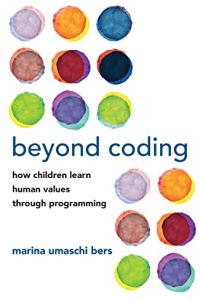Join getAbstract to access the summary!

Join getAbstract to access the summary!
Marina Umaschi Bers
Beyond Coding
How Children Learn Human Values through Programming
MIT Press, 2022
What's inside?
Coding is the literacy of the future, stresses Marina Umaschi Bers, and educators must connect it to human values and ethics.
Recommendation
Children should learn programming because it supports new ways of thinking and problem-solving – not simply because they want to work in computer science, writes Marina Umaschi Bers. Many educators fail to create classroom cultures of curiosity and learning, as they lecture children but remain risk-averse regarding teaching children moral and social values. Umaschi Bers urges educators to use play as a powerful teaching tool, while connecting ethics and values to programming. She offers crucial moral and developmental virtues educators must impart, refutes those who call for an emphasis on STEM, and reminds instructors that programming helps children understand the complexity and interconnectedness of today’s world. Coding is the new literacy, she stresses, and everyone needs to learn it.
Summary
About the Author
Tufts University professor of both child study and human development and computer science Marina Umaschi Bers is head of the interdisciplinary research group, Developmental Technologies (DevTech).

















Comment on this summary